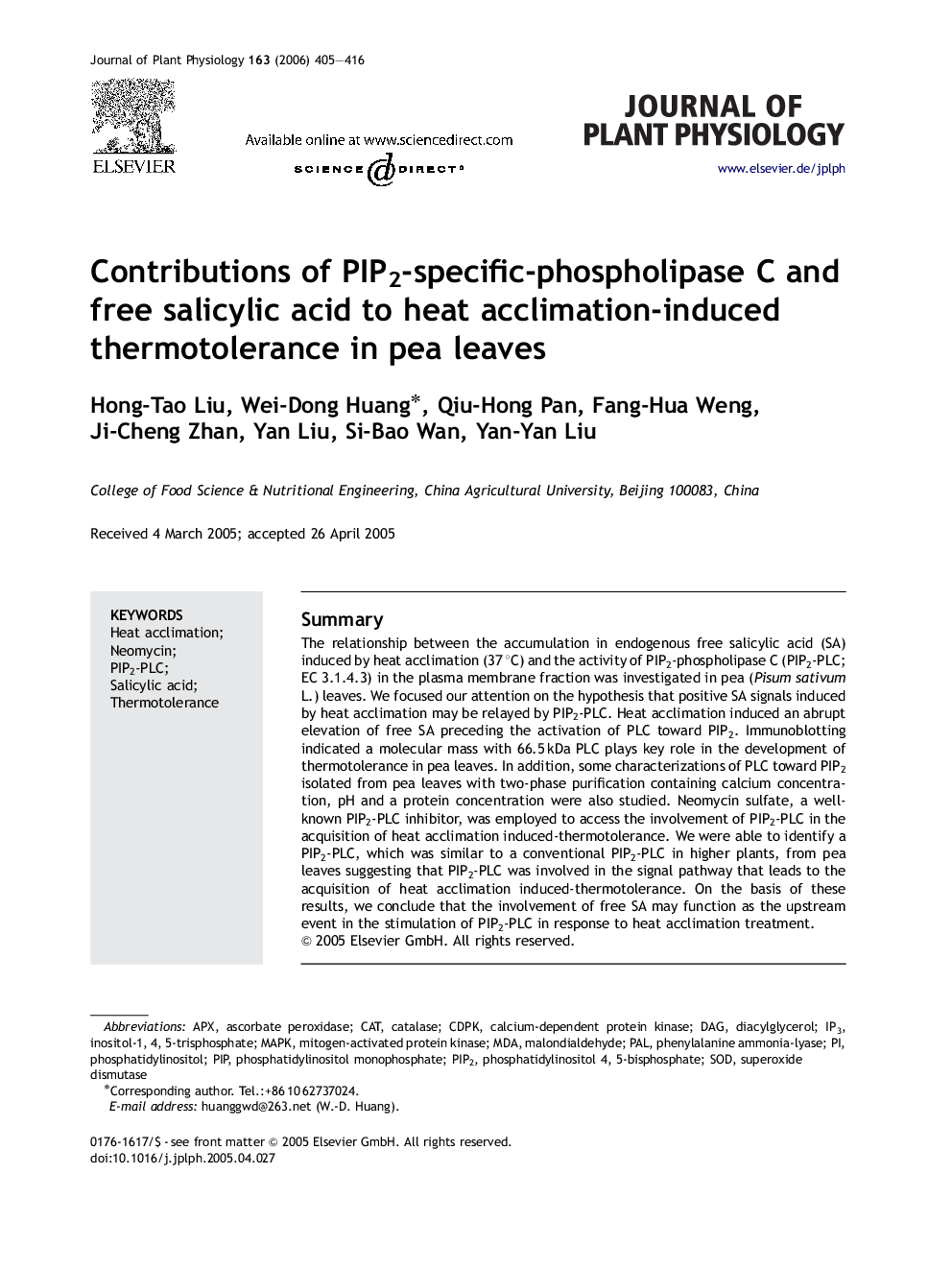| Article ID | Journal | Published Year | Pages | File Type |
|---|---|---|---|---|
| 2058062 | Journal of Plant Physiology | 2006 | 12 Pages |
SummaryThe relationship between the accumulation in endogenous free salicylic acid (SA) induced by heat acclimation (37 °C) and the activity of PIP2-phospholipase C (PIP2-PLC; EC 3.1.4.3) in the plasma membrane fraction was investigated in pea (Pisum sativum L.) leaves. We focused our attention on the hypothesis that positive SA signals induced by heat acclimation may be relayed by PIP2-PLC. Heat acclimation induced an abrupt elevation of free SA preceding the activation of PLC toward PIP2. Immunoblotting indicated a molecular mass with 66.5 kDa PLC plays key role in the development of thermotolerance in pea leaves. In addition, some characterizations of PLC toward PIP2 isolated from pea leaves with two-phase purification containing calcium concentration, pH and a protein concentration were also studied. Neomycin sulfate, a well-known PIP2-PLC inhibitor, was employed to access the involvement of PIP2-PLC in the acquisition of heat acclimation induced-thermotolerance. We were able to identify a PIP2-PLC, which was similar to a conventional PIP2-PLC in higher plants, from pea leaves suggesting that PIP2-PLC was involved in the signal pathway that leads to the acquisition of heat acclimation induced-thermotolerance. On the basis of these results, we conclude that the involvement of free SA may function as the upstream event in the stimulation of PIP2-PLC in response to heat acclimation treatment.
